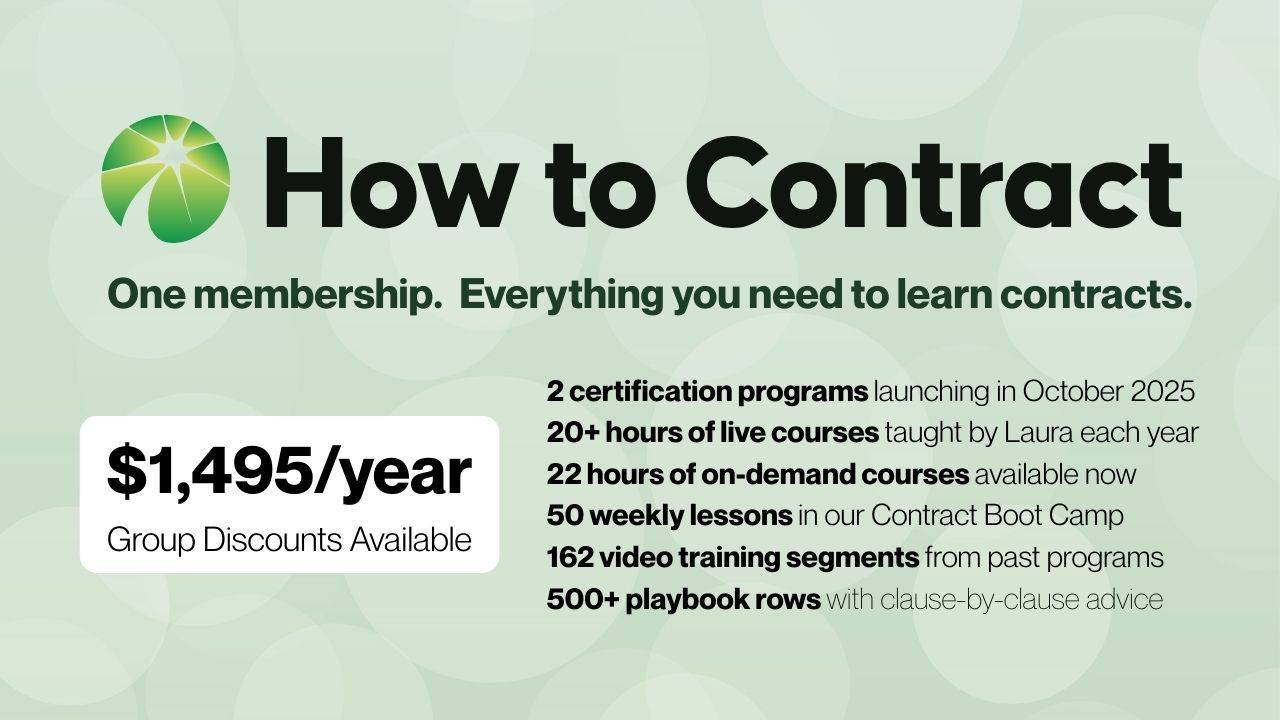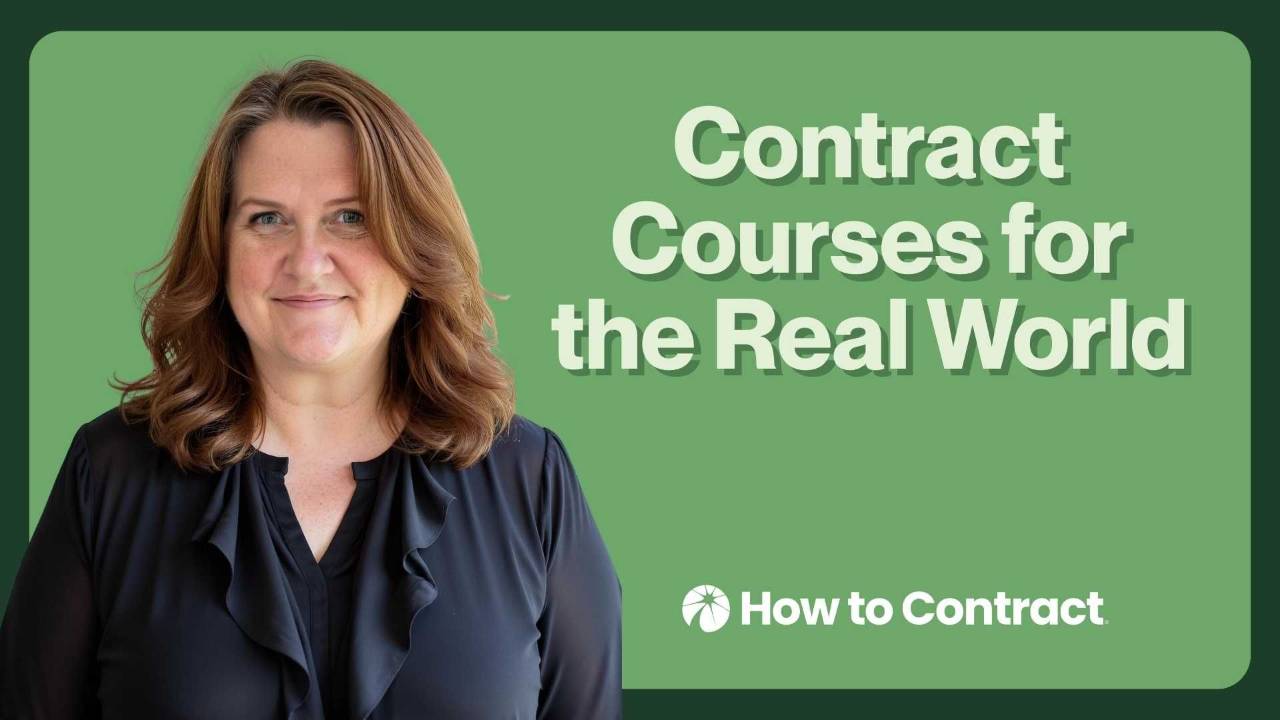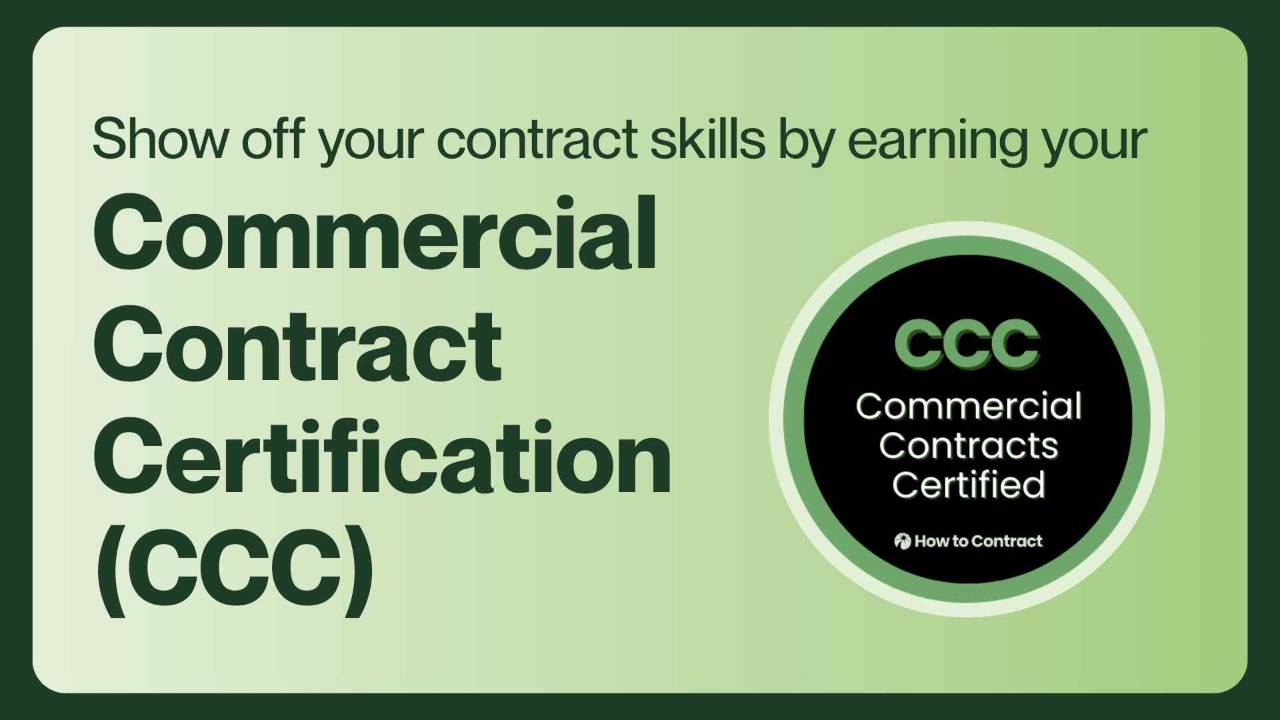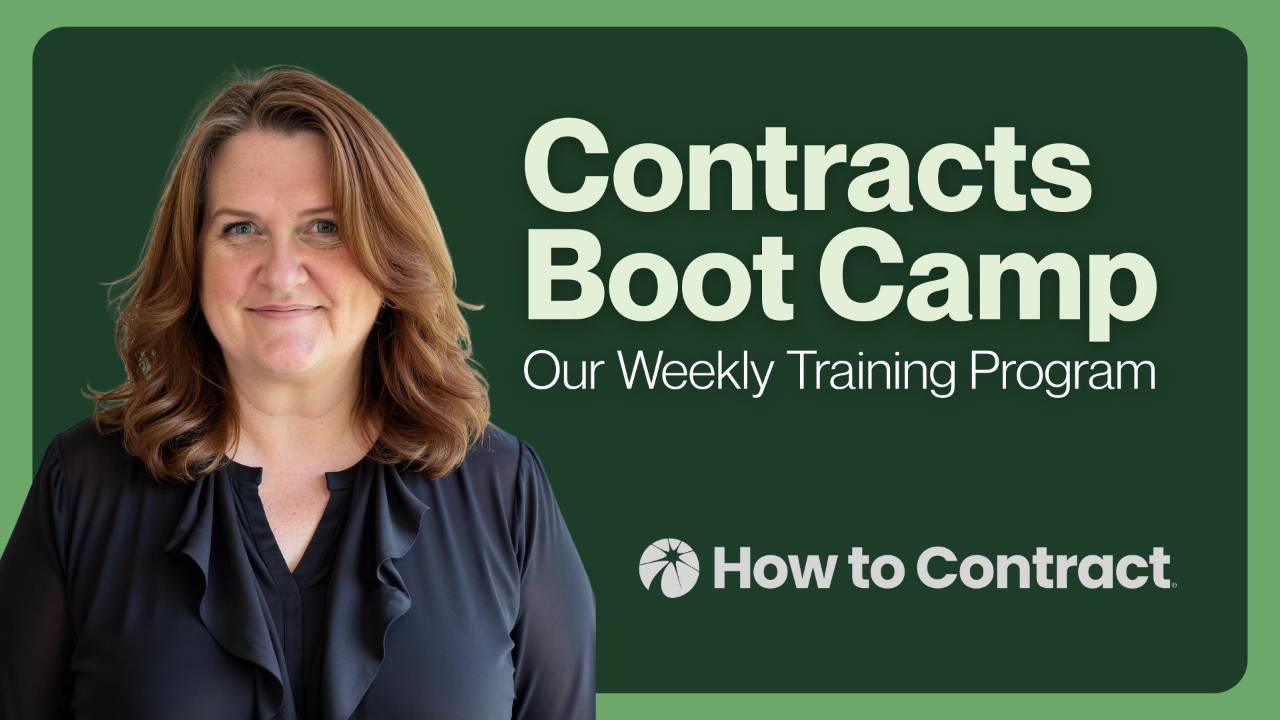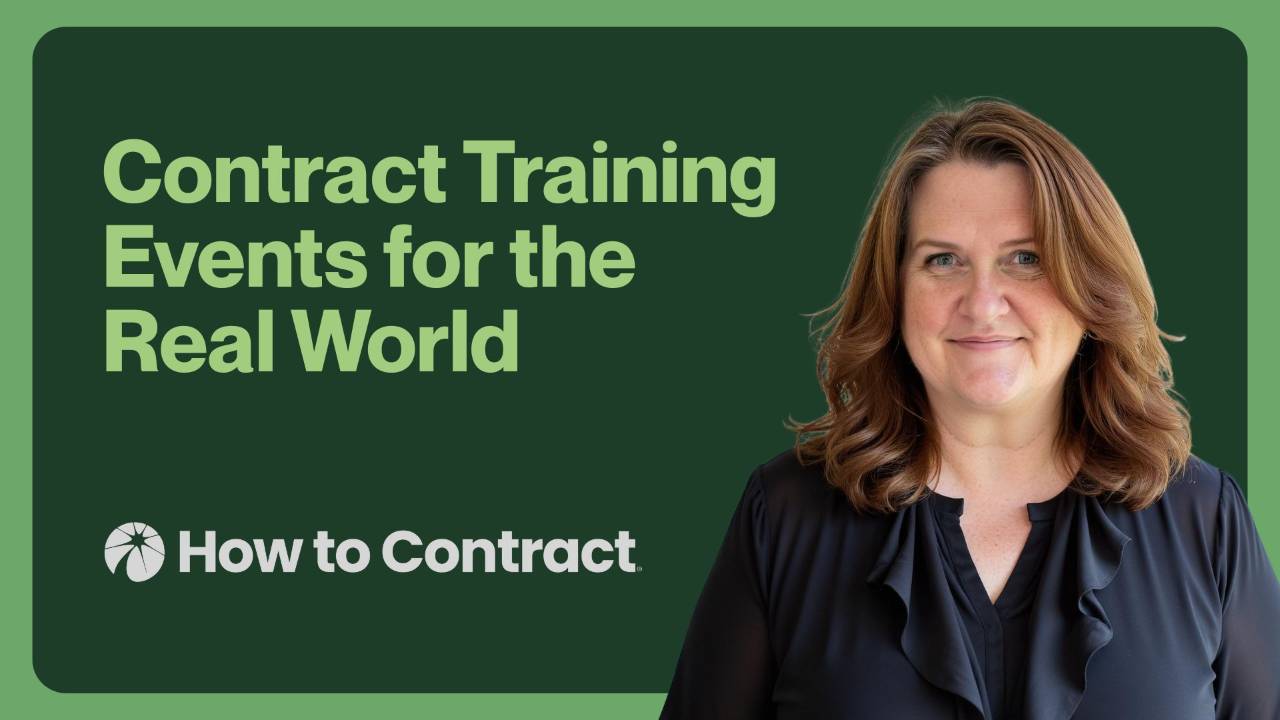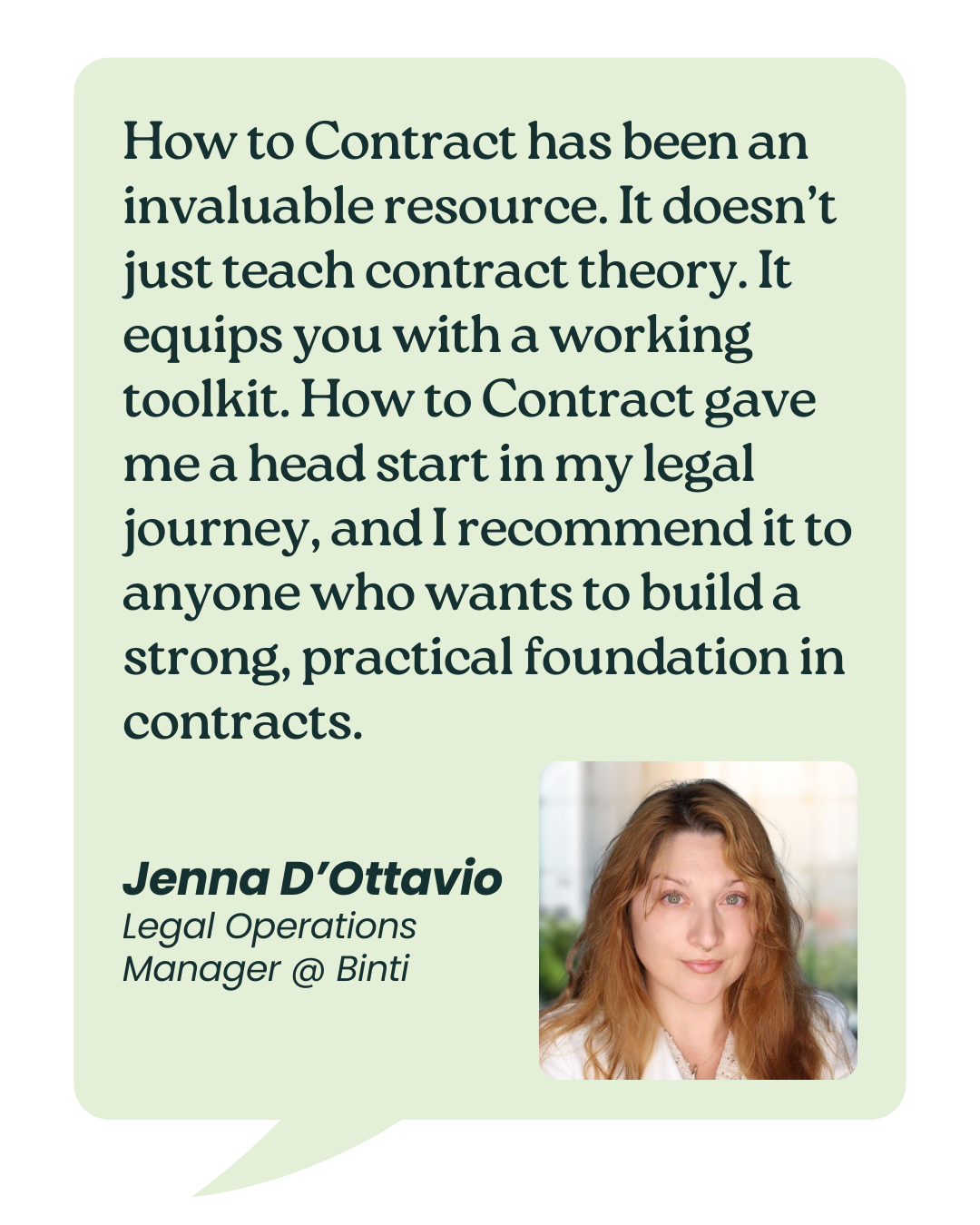
How I Contract: Sara Ajmi, Legal Operations and Technology Manager @ TELUS
This interview is with Sara Ajmi, Legal Operations and Technology Manager at TELUS and former in-house counsel. It is part of the How I Contract interview series exploring how experienced lawyers and in-house teams learned from real-world contract challenges.
Contracts Career Path
Can you tell us a story about what brought you to this specific career path? How is it connected with contracts?
Before moving to Canada in 2019, I was practicing law in-house for more than 5 years in my home country, Morocco. After immigrating to Canada, I started the process to be requalified as a licensed lawyer; but gave up on everything after I found out I was not interested in practicing law anymore.
Meanwhile, I got the opportunity to work within a legal department as a paralegal and board secretary assistant. This is when I discovered and learned how the business works from different standpoints, especially operations (because of working with all business teams) and governance and strategy (because I worked closely with the board and C-Suite teams).
After that, I found out I did not want to perform substantive legal work anymore — mainly to work on drafting or reviewing contracts. This was my #1 trauma from my in-house experience.
At this point, I changed my job and landed by pure chance in a legal operations (legal ops) position without having an idea what legal ops is or that it’s a big name nowadays.
What I over-like about legal operations is that we all as legal professionals have done it in one way or another before it became a name. It was part of our day-to-day job: handling the business or operational side of the in-house legal practice to make it more efficient, effective, productive, and better serve the internal clients.
It is connected with contracts in the sense that managing contracts and revamping the whole company contracting system is a big part of the legal ops job:
- Designing new contracting processes/workflows/guidelines/procedures,
- Reviewing existing ones,
- Automating contracting processes,
- Implementing a contract management lifecycle tool,
- Migrating contracts from one system to another one,
- Creating contracts playbook, etc.
Getting Better at Contract Management
Let’s move to the topic we all love — contracts. What should lawyers and professionals do to get better at contract management?
From my experience, other than looking at contracts from a legal perspective, I think they should adopt business acumen.
They should see it as a project, a product, or a program they have come up with. By understanding how the contract is related to the business, by defining the contract’s strategic goal, by getting a clear idea about the contract’s stakeholders' needs and objectives, lawyers and professionals can manage contracts wisely and efficiently.
Contract Management Mistakes
What are the biggest mistakes to avoid in contract management?
Again, from my experience, I strongly believe that the biggest mistakes are (by degree of importance):
- To continue working on contracts in a traditional way. By ‘traditional way’, I mean generating, reviewing, drafting, and negotiating contracts manually, communicating about contracts by email, saving contract drafts and signed versions on one’s computer, managing contracts using Excel sheets or even handling the signature by email.
It’s too much low-value work, too much wasted energy … and money!
As was my case, it’s a big source of exhaustion, demotivation, and exhaustion for lawyers or other professionals working on this on a daily basis.
I think we arrived at a point where in-house legal teams are asked more than ever to do more with less (more work, fewer resources). This is also the time to start thinking about investing in new technologies to manage contracts and deliver legal services contracts in a more efficient way.
We see everyone screaming ‘CLM’ and ‘AI’ in the legal industry, believing they have become ‘basics’ now. The reality is different: Many legal teams are still handling contracts manually. - To manage all contracts in the same way. If one contract can be highly strategic, another one can, while still being important, have a low value from a strategic perspective. That is why it is so critical to know how to be flexible and adapt to each contract.
- To manage contracts differently from how other internal teams do it. As in-house legal is required to play a strategic partner role, it’s important to handle contracts in the same way as other business teams do (sales, procurement, etc.)
Implementing a Contract Management System
How should you approach introducing a new contract management system? What should the implementation and evaluation process look like? Who should be involved? Should there be different stages? If yes, could you please describe them?
First of all, one should understand the reason behind implementing a new contract management system.
Is this really the solution to the problem? CLM systems can be purchased and implemented just to end up in the CLM cemetery.
Also, unless the end goal is automating the contracting management process, not every contract management issue needs a contract management system. Sometimes, it’s a matter of existing contract processes that need to be reviewed.
But to answer your question, the most important stages in this should be as follows:
- Understanding the pain points
- Defining the desired state (legal objectives to achieve)
- Connecting the desired state to the business strategic priorities
- Determining what department(s) and team members (legal included) are concerned and can be involved
- Preparing a business case to the senior leadership to get buy-in
- Preparing an evaluation checklist
- Preparing a list of challenges you may face before and after the implementation
- Make a list of the top 10 CLM providers you think can solve your problems
- Attending demos, taking notes, and asking questions while evaluating
- Involving other business departments and team members (legal included) in demos. Their perspectives, as they may be different from yours, can give you a more comprehensive view.
- Narrowing the initial list to the top 3 CLM providers you think can solve your problems
- Deciding based on the evaluation’s results. A panel consisting of the representatives of all the departments that are going to use the tool should make the final decision.
Measuring the Effectiveness of a Contract Management System
How can you measure the effectiveness of your contract management system? What should you pay attention to in the first place? What are the red flags? How can you understand that you are on the right track?
Those are very good questions.
I think the effectiveness of a contract management system can be measured by the problems it helped me solve, the problems it helped me avoid, and the questions it helped me answer in an efficient way.
Red flags can be:
- Leadership not supporting the use of the new system adopted,
- Teams not comfortable using it or not using it as you imagined,
- The system not allowing you to handle your contracts as you were expecting,
- You find out you are required to do many things (still automatically) in order to get one thing done within the system.
That last point is something I've experienced: I had to use a tool that cost me much back and forth, time, and energy to complete one simple task. I’d rather do it manually!
Best Practices for Operational Success With a Contract Management System
What steps should you take to make sure your contract management system works well?
I think I should prepare well for it in advance and gather more information about the pain points we are about to solve with the system. This will help me have a better idea of what is not working that I am trying to solve.
After implementation, the key is experimentation. I can’t predict that this solution will work 100% and the other one won’t. Many factors come into play.
I am also open to failure which is part of the process. If the system does not work, it’s an experience I will learn from. I will proudly start all over again considering my past experience.
Business and legal may have different perspectives and challenges while contracting. But they can still have a common vision: to support the business objectives while mitigating risks and reducing costs.
That’s why it’s so important to:
- Adopt clear, open, and effective communication with the business;
- Define roles and responsibilities. In my experience, business teams tend to perceive contracts as the legal team’s sole property and responsibility;
- Explain my challenges from a legal perspective;
- Gather information about the business teams’ challenges;
- Empower the business by offering training so they can do their part of the job and help me do mine. Because again, in my experience, I tend to do my job and the business’ job when it comes to contracting.
My Best Contract Management Tip
If you could give just one contract management tip, what would that be?
Contract management is like any other thing that should be managed from beginning to end — from creation to execution and beyond.
That means that after signing and archiving your contract, you should not ignore the final critical step, namely, the continued management of the contract while it’s active.
Advice for Your Younger Self on Contracts
What advice would you give to your younger self when you started working with contracts?
I love that question. Here's what I'd say to my younger self: Before working on the business contracts, get to understand the business first!
Biggest Lesson Learned in Contract Management
Could you share the biggest lesson you’ve learned in contract management?
Managing contracts is about managing contracts while being aligned with the corporate strategy. We don’t manage contracts for the contracts management’s sake. Unfortunately, I learned that lesson too late after I decided to give up on in-house legal practice because of my experience with contracts.
Proud Achievements in Contract Management
What are you most proud of in your contracts journey?
Other than managing hundreds of contracts in Morocco and Canada, I would say automating an NDA process and workflow.
We've partnered with IT teams to develop an NDA generator to reach two goals:
- Free up our lawyers' time for more important and strategic contracts;
- Empower business teams to request and automatically generate an NDA that is already complete and ready for the counterparty’s e-signature.
Favorite Work of Art Depicting Lawyers or Contracts
What is your favorite work of art depicting lawyers and/or contracts, if any? Why?
Your question immediately made me think of the DUCK SYNDROME (see picture below for reference).

What do you see? Calm professionals. Sometimes you don’t even know or understand what it takes them to do their job. What don't you see? Heavy overload, stress, pressure, and a lot of effort to serve you in the best way.
Thanks Sara for all your great advice! We appreciate you.
How to Contract's membership is designed to help you build real-world expertise with commercial contracts. Get access to our comprehensive system of live and on-demand courses, weekly lessons, detailed playbooks, and more. Join today!

